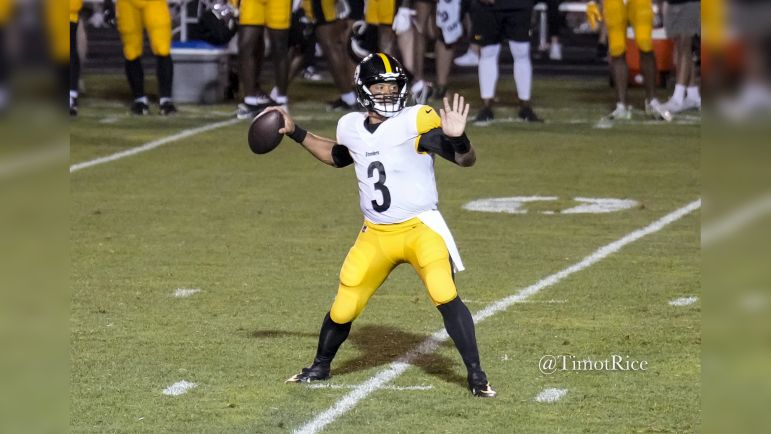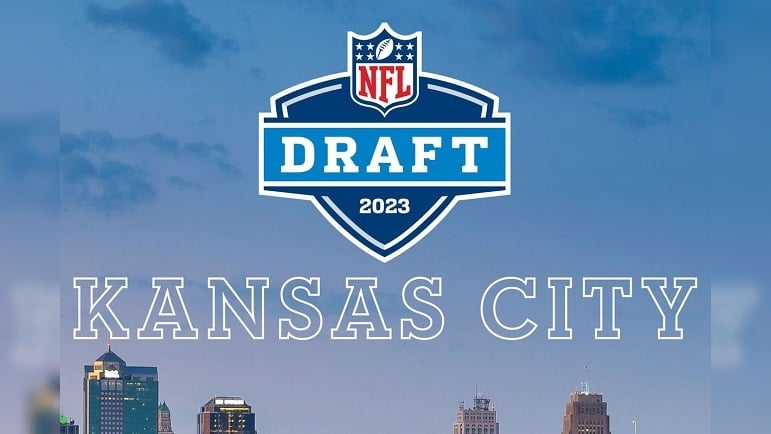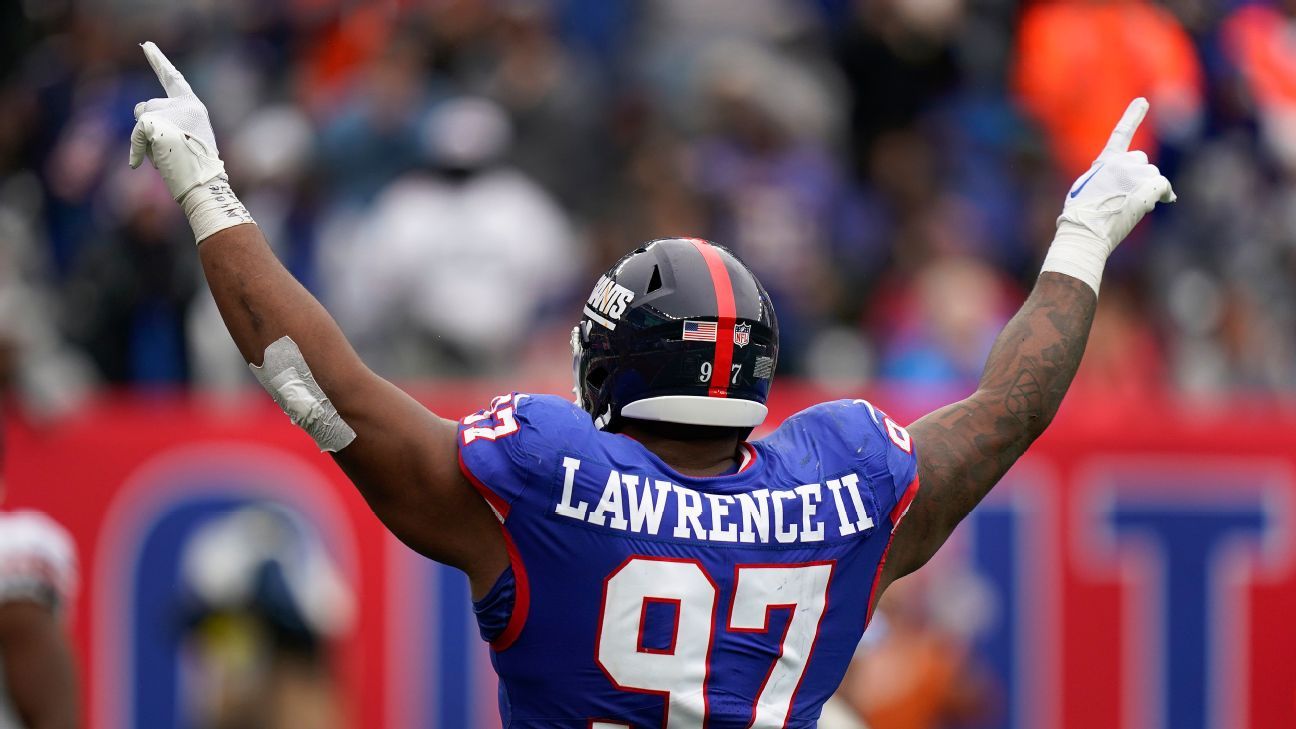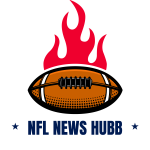For the rest of the summer, we’ll give a position-by-position, player-by-player recap of what I saw during the 2024 Pittsburgh Steelers training camp and preseason games. This list is based off the 16 public camp practices and the preseason games I’ve watched to this point. It’s based solely off their performance over that span and does not necessarily represent my feelings for the player over the course of the regular season.
A heads up, I intend on using the full grading scale through these reports. Not just giving players A’s to C’s. It may sound harsh but it’s as honest and fair as I can be.
With that in mind, let’s start with the quarterbacks.
Russell Wilson
The calf injury he suffered during the team’s conditioning test threw a wrench into the Steelers’ plans and our evaluation. Though the ailment was minor, Pittsburgh was careful not to let a small injury turn into a big one. Frustrating as it was to observe the glacial pace of Wilson’s practice progression, doing a little bit more each day, it was the right call by Mike Tomlin.
It took until the 10th practice, Aug. 4, for Wilson to throw his first pass in team drills, connecting with reserve WR Duece Watts on a 5-yard curl that he turned into a 15-yard gain. And it wasn’t until the final three practices that the training wheels felt truly removed, Wilson given permission to scramble around and make plays outside the pocket.
When he finally threw, Wilson looked good. There was some early rust to knock off, Wilson struggling to get the timing down on out routes during one practice, but he quickly looked like the quarterback Pittsburgh signed him to be. He made the throw of camp, a 60 air-yard completion down the middle perfectly placed to WR Calvin Austin III. Wilson (and Justin Fields) have the best arms and deep throws of any quarterback I’ve seen in the decade I’ve covered camp, and yes, that includes the Ben Roethlisberger era.
Where Wilson separates himself from someone like Fields is his ability to show more touch and take some juice out of the ball. He layered the ball on short and intermediate routes and displayed excellent accuracy to all levels. His cadence was also effective, Wilson far more vocal than Fields. Though Pittsburgh often rotated both quarterbacks, all you needed to hear was the snap count to know who was in the game. Wilson also effectively used cadence to get the defense to tip its hand on blitzes.
Overall, Wilson threw just 51 passes during team periods. He completed over 70 percent of them and threw for six touchdowns. He also took care of the ball, finishing with zero interceptions. I don’t recall him ever coming close to being picked, either.
The sample size is small, and it would’ve obviously been better to watch him work throughout an entire training camp. But judging his limited play in a vacuum, putting aside the injury derailment, it was a good camp. And most importantly, he’s healthy now as the regular season nears.
Grade: A-
Justin Fields
The four pad-less practices that began training camp had Fields looking like the same old quarterback. Some serious highs with frustrating lows, Fields struggling to hit the easy throws underneath while wowing with his arm strength and physical talent. But he steadily progressed the rest of camp, evening out his play. As an example, look at his accuracy and completion rate. Over the first four practices, Fields completed just 50.9 percent of his passes. Over the next 12 sessions, he completed 72.7 percent of them. His yards per attempt also rose from 5.1 over the first four to finishing at 7.0 by camp’s end and threw 26 touchdowns during the 11 on 11 period throughout camp.
Putting numbers aside for a moment, Fields’ best traits still came down to his arm talent. Making throws and plays others simply aren’t capable of. While many know Fields has a big arm, his deep ball accuracy and placement are the most impressive parts of that aspect of his game. He’s able to hit receivers in stride downfield, not forcing them to slow down or adjust back for the ball. He littered downfield throws to Van Jefferson, Quez Watkins, and George Pickens. “Fields to Pickens” was the most common phrase uttered in camp, the two developing an impressive connection midway through camp that lasted until the end.
While camp quarterbacks can’t be sacked or hit – unless you’re Elandon Roberts – Fields’ burst and speed were still felt. Pittsburgh routinely ran read options and even one designed quarterback power run in Seven Shots that Fields put in the end zone. That showed their willingness to utilize his legs and if he’s the backup, finding a package of plays to get him on the field. His athleticism comes as little surprise but it’s still fun to watch in person.
Overall, Fields made good decisions and showed an ability to go through his reads. In a practice environment, it was harder to evaluate pocket presence and how rhythmic he was as a passer. His handful of snaps in the preseason opener were a mixed bag, Fields playing clean and smart on his six throws, though the two botched exchanges remind of the mistakes and turnovers that litter his career.
Fields is an elite athlete, outrunning the secondary one day, winning the home run derby the next, making one-handed catches in warmups after that, and his ability to change arm slot also shows that. He can drop his release to fit the ball around people, especially vital in Arthur Smith’s screen-heavy approach this camp.
But with that comes his most consistent negative throughout camp. Batted passes. I have never seen a quarterback have as many throws batted down at the line of scrimmage as Fields. He had four through the first three practices and by the end of camp, he had a whopping 11 of them knocked down, or five percent of his total attempts. Two of those batted passes were picked, one by SS DeShon Elliott in Seven Shots, another by LB Jacoby Windmon. Those amounted to half the interceptions he threw all camp. A 12th bat down evidently came during Thursday’s joint practice with Buffalo.
His footwork also feels spotty, though he has the talent to make strong throws even off his back foot. Fields also needs to show more touch on his throws when needed. A great example and contrast came on screen passes against a blitzing Beanie Bishop Jr. Fields’ throw was jumped, picked, and housed by Bishop. In a later practice calling the same concept, Russell Wilson’s pass was floated over the leaping Bishop and into the receiver’s arms.
Fields benefitted from the extra reps received while Wilson was slowly brought back from his calf injury, not seeing regular team period work until the second week of August. That gave Fields plenty of burn with the starters.
In aggregate, Fields progressed throughout camp and ended it as a better quarterback than he started. He’ll see the field in 2024, but it remains to be seen how many conventional quarterback snaps he’ll receive to create an in-season evaluation to determine his Steelers’ future.
Grade: B+
Kyle Allen
Allen’s summer played out the inverse of Fields. In a vacuum, Allen outperformed Fields over the first four practices, more accurate with the football and stringing together solid practices. But he faded once the pads came on and looked like a journeyman No. 3 quarterback by summer’s end.
On the positive side, Allen was generally accurate and had the calm approach of a veteran. He got the ball out on time, did well to beat the blitz, and got the offense aligned without many miscues or a comedy of errors. Through four practices, he completed more than two-thirds of his passes, threw four touchdowns to zero interceptions, and bested Fields in YPA and YPC. Like Fields, Allen benefitted from extra reps due to Wilson’s injury, averaging 12 per day throughout the first 10 practices. He’s even a little athletic, able to roll out and keep the play going. Allen even juked LB Luquay Washington in a 1-on-1 drill, though I’m sure Washington was careful not to get too physical.
Over the course of camp, his interceptions ramped up and he struggled in short-yardage areas. Too many end zone interceptions. Two of his six picks came in Seven Shots while a third came during the team’s annual goal-line period. All three were either forced throws or moments where Allen got tunnel vision and never saw the defender, like S Nate Meadors jumping a route and picking him midway through camp. Allen had iffy success in two-minute opportunities, once benefitting from a phantom Mike Tomlin-called penalty to keep a drive alive that eventually resulted in a score.
After completing nearly 75 percent of his passes through the first four days of camp, he completed just 61 percent of his throws the rest of the way. Allen threw more picks (six) than touchdowns (five) over that span though some of that was due to losing Seven Shots reps as Wilson worked his way back into the fold. By camp’s end, team reps were harder to come by as Wilson’s work accelerated. For example, on Day 15, Allen received just nine team-period reps after seeing double-digits every day in the first 13 sessions.
In his lone preseason outing at the time of this writing, Allen’s performance against the Houston Texans got off to a rocky start. He missed WR Calvin Austin III for a wide-open touchdown on fourth and goal, threw over RB La’Mical Perine’s head on a screen that would’ve been a big play, badly missed WR Scotty Miller out of bounds, and committed a false start. But he finished on a higher note with multiple big-play completions, and he led two touchdown drives.
Allen’s NFL experience is useful as the team’s third-string quarterback, something the Steelers prefer to have considering how often the team has turned to that guy in recent seasons (2019, 2023 as examples). Pittsburgh could try to pass Allen onto the practice squad and use him as its emergency third quarterback as a weekly elevation. But their old-school nature of rostering three on the 53 and the downside to that new rule, eating up one of the two standard elevations, makes this option look less likely.
Camp Grade: C
John Rhys Plumlee
Winner of our camp “Mr. Versatile” award, an imaginary trophy I’m sure he’ll place on his imaginary mantle. Plumlee did spend most of his training camp at quarterback and never made a full position switch, partaking in QB drills from start to finish.
But his value was in his athleticism, not playing quarterback, like our pre-draft scouting report indicated. Plumlee did everything this summer. He returned kicks and punts in practice while running back a pair of kicks in the preseason opener. Fielding the ball was sometimes an adventure but expected for someone who hasn’t done it before. Later in the Texans game, he served as the PP/up-man on the punt coverage team and made a tackle despite not working there in practice. It was an awesome moment.
When lines got short at receiver following injuries to Tarik Black and Roman Wilson, Plumlee jumped in to take a few reps there and caught two short passes for 11 yards during one practice. He played one year of WR at Ole Miss and looked pretty natural doing it. That versatility creates value, and you have to appreciate his can-do attitude. He knows he has to do whatever the team asks of him, even if he views himself as a quarterback.
Evaluating that position, the results weren’t good. Plumlee completed only 40 percent of his passes and was picked off twice. One of his picks came on a forced cross-body throw in Friday Night lights, easily plucked by rookie S Ryan Watts while Grayland Arnold fell off his zone and stepped in front of another scramble drill earlier in camp. His lack of height also created bat-down issues, getting one smacked down by DL Willington Previlon and another by a blitzing LB Tyler Matakevich.
Unlike some fourth-string quarterbacks, Plumlee didn’t always play conservatively and hit a couple 20-plus yard passes though he became more cautious toward the end. And he utilizes his mobility to scramble when needed. His best throw of camp, a dime on a 15-yard dig over underneath zone defenders, was knocked out of Calvin Austin III’s hands by new CB Zyon Gilbert.
Plumlee is a gamer with toughness and natural athleticism. He fits on the scout team to give Pittsburgh looks of mobile quarterbacks, and his ability to wear a bunch of hats makes him worth keeping on the expanded practice squad. But if he wants to stick beyond a rookie season, he should make a permanent switch from quarterback to wide receiver. There, with the special teams value he potentially possesses, Plumlee could stick around.
The below grade will consider all he did at camp, not just his quarterback play, which would’ve come out to a ‘D’ as a stand-alone letter.
Grade: C-







